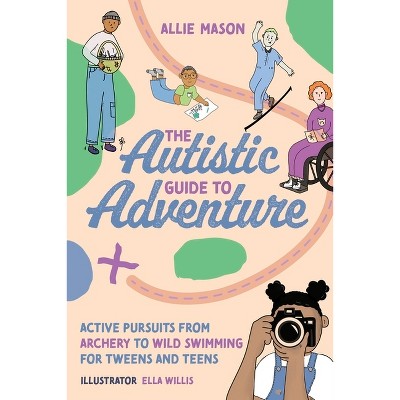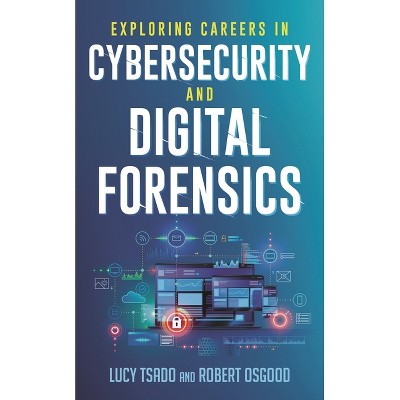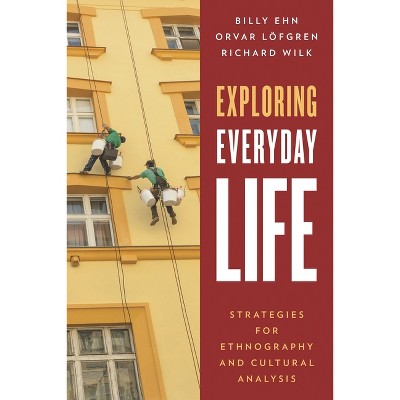Sponsored

Exploring Careers in Cybersecurity and Digital Forensics - by Lucy Tsado & Robert Osgood
In Stock
Sponsored
About this item
Highlights
- Exploring Careers in Cybersecurity and Digital Forensics is a one-stop shop for students and advisors, providing information about education, certifications, and tools to guide them in making career decisions within the field.
- 8.5" x 5.5" Hardcover
- 154 Pages
- Young Adult Nonfiction, Careers
Description
About the Book
Exploring Careers in Cybersecurity and Digital Forensics serves as a career guide, providing information about education, certifications, and tools to help those making career decisions within the cybersecurity field.Book Synopsis
Exploring Careers in Cybersecurity and Digital Forensics is a one-stop shop for students and advisors, providing information about education, certifications, and tools to guide them in making career decisions within the field.
Cybersecurity is a fairly new academic discipline and with the continued rise in cyberattacks, the need for technological and non-technological skills in responding to criminal digital behavior, as well as the requirement to respond, investigate, gather and preserve evidence is growing. Exploring Careers in Cybersecurity and Digital Forensics is designed to help students and professionals navigate the unique opportunity that a career in digital forensics and cybersecurity provides. From undergraduate degrees, job hunting and networking, to certifications and mid-career transitions, this book is a useful tool to students, advisors, and professionals alike. Lucy Tsado and Robert Osgood help students and school administrators understand the opportunity that exists in the cybersecurity and digital forensics field, provide guidance for students and professionals out there looking for alternatives through degrees, and offer solutions to close the cybersecurity skills gap through student recruiting and retention in the field.
Review Quotes
Recent headlines prove that there are ever-widening skill gaps between law enforcement and increasingly sophisticated cybercrime. This straightforward manual hopes to mitigate the discrepancy by providing clear cybersecurity career paths for individuals, counselors, and educational institutions. Written by two authors with considerable experience in both criminal-justice research and practice, the book is filled with charts, graphs, lists, reproducible forms, sample cases, and practical advice laid out in brief, accessible chapters. There's advice about desired coursework, majors, internships, networking, conferences, and apprenticeships (for both students and institutions). There are helpful hints on how to analyze job postings (interpreting government jargon, KSA--Knowledge, Skills and Abilities--requirements) and examples of functional resumes that stress skills as opposed to previous employment. Readers will also find time-honored interview caveats: wear a suit, shake hands, look them in the eye, smile. One extremely helpful appendix charts feeder jobs that can lead to top cybersecurity positions; others do the same for criminal justice students looking to specialize in specific areas. This concise guide, which could be an effective textbook, will be extremely valuable to anyone considering a career change.
About the Author
Lucy K. Tsado, PhD, is an assistant professor in the Department of Sociology, Social Work and Criminal Justice at Lamar University, where she teaches cybersecurity, digital forensics, cybercrime, corrections, criminal justice policy, planning and evaluation, class, race, gender and crime to criminal justice students.
Robert Osgood is an engineer, CPA, and a twenty-six-year veteran FBI Computer Forensics Examiner and Technically Trained Special Agent. His specialties include: digital forensics, data intercept, cyber-crime, enterprise criminal organizations, espionage, and counter-terrorism. In the course of his work, he has performed digital forensics research and development and created unique new software tools for digital forensic law enforcement. He also serves as a digital forensics consultant to Probity Inc. working with the Truxton development team. He formed the first FBI computer forensics squad in 2000, served as the Chief of the FBI's Digital Media Exploitation Unit and was part of the team that executed the first court-authorized digital computer intercept at the FBI. Osgood managed and deployed the Washington, D.C. gunshot detection system.
Shipping details
Return details
Frequently bought together












